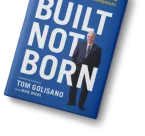Statement of purpose is one of the most crucial documents for your Masters or Ph.D. admission. It is constantly scrutinized and is the deciding factor for a positive response. In today’s rapidly transforming world, every individual seeks to gain maximum and quality education, which has escalated the number of applicants who wish to study abroad. Given such heavy applications, it is vital to have a unique and appealing statement of purpose to make yourself stand out and benefit from studying abroad.
Indeed, drafting a perfect Statement of Purpose is not a cakewalk; it would require spending time working honestly to reap the desired results. While all the applicants tend to follow a specific template or to-do list for the SOP, the ones that stand out often make some customizable changes to their essays.
So, here are a few hints and suggestions that you should check while drafting your SOP for Ph.D. and Masters:
Start Early and Start Strong:
Hurrying through the Statement of Purpose will not only degrade the quality of work but also will drastically lower your acceptance chances. It would be best to have enough time for multiple revisions and changes. It is recommended that you start brainstorming on your SOP at least a month before the submission date. While drafting, you must remember that a good SOP is a product of much deliberation and planning and cannot be left for the eleventh hour. So, start early and give yourself quality time to research and create the first draft.
The very first draft written by you would always have some potential changes, and when you have enough time in hand, you can peacefully look to polish the Statement of Purpose and make it crisper. But, at last, it has to match the university’s standard you are applying to and must meet their expectations.
Draft a Story:
Remember that your SOP is the most proficient way to express yourself, and it is the best way to explain any flaws or extraordinary aspects that cannot be included in the resume or cv. While university admissions are concerned, a statement of purpose is the first document that the concerned authority will access, laying great importance on the document.
So, you have to write a meaningful and compelling story to keep the reader interested. Beginning with writing won’t be an easy task. You may tend to write just statements that are not linked or don’t show any emotional connection. Remember your SOP should reflect your personality; it should not be a novel or newspaper article that most readers only skim through. Indeed, we remember stories much more effortlessly than statements.
So, here comes the importance of the introductory paragraph. It should be written with utmost care and effort, as it will create a first-hand impression on the reader. How you have started is the most vital thing in writing an SOP, so it is suggested to begin with a quote summarizing your whole qualification. Then, you can elaborate on the quote and link it to your professional career. This will be a vital factor as many students tend to copy the set template and follow it throughout the SOP, and adding one of the famous quotes will surely help you stand out from other applicants.
After acing the introductory paragraph, you now have to maintain the SOP flow. Your essay should not wander around, jumping from facts to achievements and work experience. Again, having a perfect chronological order will be helpful. It will keep the reader hooked, and he will feel as if he is walking the road of your life through the essay.
Be Unique and Specific:
There has to be a crucial aspect that makes you unique and worthy of the opportunity. It will indeed require some great brainstorming, but you will land with one or two such factors unique to your application and put you in a better place for acceptance. You have to be infallible that whatever you express in your Statement of purpose is highly precise and detailed. Don’t just convey something because you think it will impress the admissions committee. Whatever you say, you have to dig into details.
Admissions officers demand the Statement of purpose not just because they want to know about you. More significantly, they want you to think for yourself why you are taking such a life-changing step, why you think this is the best thing that can happen to you; and why you believe you truly need it to succeed in life. So, given such expectations, you need to portray a solid stand. Firm reasons should back every event that you are mentioning. You can also consider mentioning a few of the relevant achievements. Mention only pertinent and significant achievements. Try to include only the information from the college or graduate level, do not go into schooling achievements, as they may negatively impact. Consider them only if they are a vital part of your story.
While referring to this point, answering some personal questions can be of great help. You can write about why you want to pursue the course, how it will affect your professional career, and why you think you are a perfect fit? Writing relevant answers would automatically add a personalized and specific approach to the Statement of Purpose. When the reader scans the resume or CV of the candidate and spots a gap in the academic or working career, it creates a negative impact and is sure that it gives rise to a lot of questions, and eventually, he will look for the answers in the sop.
Also, while drafting these answers, refrain from taking help from the internet, as it would just constrain your thoughts. Working your brain through this process will surely make the SOP unique.
Modify the SOP:
One of the typical blunders students make is simply following a set template and using the same format even while applying to different universities. Often, students only change the necessary details and keep the rest of the draft entirely similar. This practice is not appropriate because even if it seems that all the universities are identical, there are some significant differences in them that surely need to be considered.
Each university is diverse in its cultures, teachings, and values. They even have varied crucial departments and rankings in their domains. Mentioning these aspects in the SOP will undoubtedly make your draft unique, as you have walked the extra mile to research and compile relevant and crucial information.
So, if you are applying to numerous universities, you need to check about all these qualities of every university and customize your Statement accordingly. Mere changes in names and details would not suffice. It would help if you tailored your essay such that the admissions officers think you will fit in well into their community.
Follow a professional tone:
Maintaining a perfect balance between a professional and conversational tone is crucial and challenging. Many SOP’s are either very professional or very friendly. Students need to understand their writing style and draft the SOP in a balanced tone.
Now that you are following a professional tone, don’t write a formal letter with only the facts and information, which will lack connection. You should understand that while keeping it formal, you should maintain a conversational tone. The reader should connect with your story, and he should feel disconnected or distracted at no point.
Furthermore, occasional humor is acceptable, but you should not try to sound too funny or too bright. No deliberate jokes or funny lines should find their way into your Statement. After all, it’s a statement of purpose, and the aim is to pursue a graduate degree, not to impress people with your sense of humor. So, if what you write brings a smile to the reader’s face, then it’s perfectly alright. But it shouldn’t make them throw away your application because you did not seem severe enough to them.
Include Research Experience and Skill Sets:
Many candidates tend to include only their work experience briefly. Though this is appreciated, many more crucial factors need to be addressed carefully. One of them is your research experience. Universities abroad are very peculiar about the research domain that the candidate is interested in. Therefore, candidates having a clear vision about their research domain are highly appreciated.
To start with, you can mention your minor and major projects performed during your bachelor’s. Writing in detail about them is essential, but also remember that you should not be highly technical in your tone. You can mention the crucial technicalities and write about your personal experience while and after successfully conducting the project. To conclude, you can certainly add in the essential skills that you could gain by completing the project. This shows confidence and authority to the reader.
Mentioning the challenges and learnings is crucial. The reader should clearly understand what challenges the candidate faced during the project’s progress and how he dealt with them successfully. Learnings are nothing but the knowledge gained after completion. You can mention some technical skills that the candidate gained or write about relevant soft skills like time management, leadership skills, teamwork, etc.
So, it is evident that the project should have a convincing conclusion. It should mention what goal has been achieved after completing the project and the convenience it can bring to real-life problems. Furthermore, while explicitly writing about the project, if you lack information to complete the word count, you can generalize the field of study. You can write a few sentences about the selection of the topic and the project’s execution process. This will bring an added advantage to the sop.
Why are you a perfect fit?
This is indeed one of the most vital parts of your Statement of Purpose for Ph.D. and Masters. The admission committee is always keen to understand why you would be the perfect fit for their course. They check your professional path and analyze you as a person. While you must avoid showering faculty with praise, you should also demonstrate knowledge of the program.
All the necessary information about the program and relevant faculty information can be gathered from the university’s website. Remember that mentioning the faculties is very important. You can say some renowned research or work experience of existing faculties and how your interest perfectly aligns with their work. This is how you can assemble yourself to stand out and portray yourself as a perfect fit for the course.
Proofread and Edit:
Going through the Statement as many times as possible is vital. The more you proofread it, the more chances you can make it crisp and refine it. There is always space for advancement, and so is the case with your Statement of Purpose.
You may miss out on some details in the first and second revisions. We often skip through and hurry, thinking that everything’s perfect. So, it is highly advised that you proofread and edit your Statement at least thrice.
You may also want to take some help from experts. Sending the SOP to your teachers and alumni of the particular university will be a great option. They are experienced and in the perfect position to give you constructive solutions. So, take that extra step and work towards perfecting your SOP thoroughly.
These were some of the vital factors that you need to consider to stand out in your sop for Ph.D. and Masters. The sop you create should be flawless and should not have any unacceptable grammatical mistakes, and should have just the perfect information, so sticking to only relevant content is essential. Also, remember that the Statement should not sound vague. Never try to include extra achievements or extravagant performances. It is very likely that it will disrupt the flow, and the examiner will promptly reject the sop and move forward. So, stick to the real information, and portray it genuinely. Keep all such vital aspects covered, and indeed, you will have one of the most unique and perfect Statement of Purpose.
Tip: Begin with a Hook Statement.
Lastly, your SOP should always begin with a strong hook statement. You must keep in mind that readers become desensitized to a piece of writing after reading several assertions that appear identical.
Among the few strategies to assure that people spend a significant amount of time with your document is to captivate and entrap them so that they cannot take their eyes away from it without reviewing it thoroughly. This is the purpose of a hook statement.
You can pique your readers’ interest by beginning with:
- A personal anecdote
- A solid opinion
- A query (very recommended)
- An original observation (coated with metaphors)
- Or by highlighting your objective and motivation without false equivalence.
Starting with powerful hooks assures, you will be remembered positively and for a long time during the evaluation process. Finally, I advise you to pique the readers’ interest to the point where they feel driven to interview you or ask you to the following selection rounds.
When you have 100 thoughts to share, pick 50–70 to include in the SOP to pique their interest, make it a mystery they’d desire to solve, or at the very least comprehend it from a different perspective!































